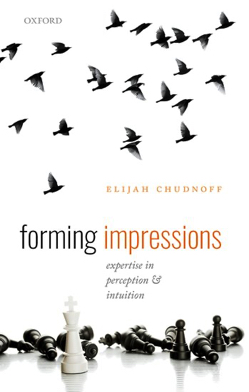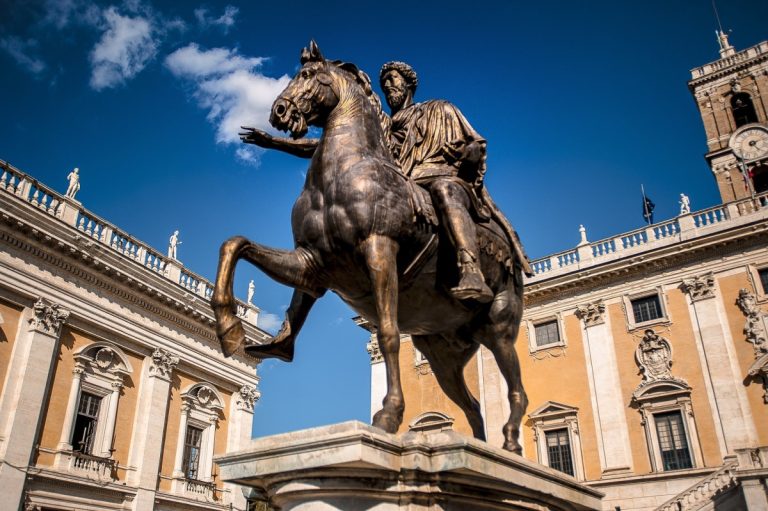
This is the fourth in a series of posts about my recently published book, Forming Impressions: Expertise in Perception and Intuition (OUP, 2020).
Intuition in Philosophy
The negative experimental challenge to current philosophical method can be usefully organized into three phases.
[A] Philosophers make judgments about knowledge, freedom, wrongness, etc. based on intuitions about knowledge, freedom, wrongness, etc. These form an epistemically distinctive class of intuitive judgments. [B] Intuitive judgments play a special role in philosophical method. [C] If so, then what that means is they are treated like data used to confirm or disconfirm theories about knowledge, freedom, wrongness, etc. [D] Current philosophical method is a sound way to theorize about knowledge, freedom, wrongness, etc.
In Chapter 7 of Forming Impressions, I suggest another way to invoke expertise. According to this alternative form of Expertise Defense, Phase 3 in the negative experimental challenge is problematic because part of philosophical methodology is deliberately improving intuitions so they are expert-like in content. Maybe there are no upstream barriers to irrelevant influences. And maybe there are no downstream quality controls. But philosophers do spend time drawing distinctions, clarifying meanings, proposing analogies, highlighting logical form, etc. All of these influence what is found to be intuitively compelling.
I’m also suspicious of the Standard Picture. But I’m inclined to accept elements [A], [B], and [D]. My suspicions are about element [C]. Epistemically distinctive intuitive judgments might play a special role in sound philosophical method without being treated like data. Part of what it is to be treated like data is to stand in the following relation to reasoning: reasoning might tell us where to gather data and what data to keep and what to throw out, but reasoning does not determine what the available data are. I think reasoning can determine our intuitions and via them our intuitive judgments.
Phase 2 gives reasons to think that philosophers’ intuitions are influenced in the same way. This might involve generalizing from folk to philosophers. Or, as in some more recent work, it might involve surveying philosophers.
According to one form of Expertise Defense, Phase 2 is problematic because philosophers possess philosophical expertise that manifests itself in superior philosophical intuitions. One dimension of superiority is that their intuitions are not influenced by irrelevant factors.
Let’s call the following picture of philosophy the Standard Picture.
The Expertise Defense
Negative experimental philosophers reject [D]. According to them, experiments show that intuitive judgments are inappropriately sensitive to factors such as socioeconomic status, cultural background, and order of presentation of thought experiments. Garbage in/garbage out, so current philosophical method is unsound.
Any line of reasoning this involved will be open to criticism at various points. Let’s set aside worries about Phase 1. Expertise has been invoked in certain criticisms of Phases 2 and 3.
Recent philosophical discussion of intuition has primarily occurred in reaction to the Standard Picture. Participants criticize or defend one or another element in it.
The second post in this series discussed how experts can talk novices into better intuitions. Much of philosophy, it seems to me, consists in philosophers talking each other into what they consider to be better intuitions. As noted in the earlier post, this practice doesn’t presuppose that anyone count or be recognized as an expert about knowledge, freedom, wrongness, etc.
Phase 3 goes something like this. If philosophers’ intuitions are influenced by irrelevant factors, then any method that accords judgments expressing them a special role is unsound. Intuitive judgments do play a special role in philosophical method. So, current philosophical method is unsound.
According to a second form of Expertise Defense, Phase 3 is problematic because philosophers possess philosophical expertise that manifests itself in superior use of intuition in reasoning about philosophical subject matter. Their intuitions might be influenced by irrelevant factors, but practiced philosophers know how to use them to good effect anyway.
Phase 1 reasons from results of surveys to the conclusion that folk intuitions about thought experiments are influenced by irrelevant factors that do not track the truth about their subject matter.
Various forms of philosophical anti-exceptionalism challenge [A] and/or [B]. One strand rejects the idea that there is an epistemically distinctive class of intuitive judgments, maybe because there are no intuitions. Another strand sidesteps this issue and rejects the idea that intuitive judgments play any special role in philosophical method; putative intuitive judgments are replaceable with arguments.
You are reading Kripke’s Naming and Necessity. You share his intuitive judgment about the Gödel-Schmidt case. Now you acquire the kind of evidence that your intuition is influenced by irrelevant factors provided by experimental philosophers. Should you suspend your judgment about the case? No. You also know that you, but not the participants in the survey, have just read through Lecture 1 of Naming and Necessity (the case occurs in Lecture 2) and so benefit from relevant stage setting that helps you to see more clearly what to say about the case. Even if you’ve gained evidence that your intuition is influenced by irrelevant factors, you haven’t gained evidence about how those factors will interact with other factors you know to be present.
